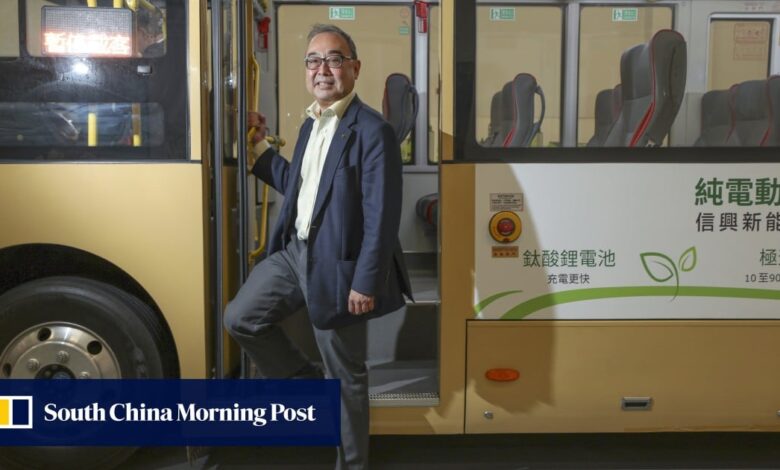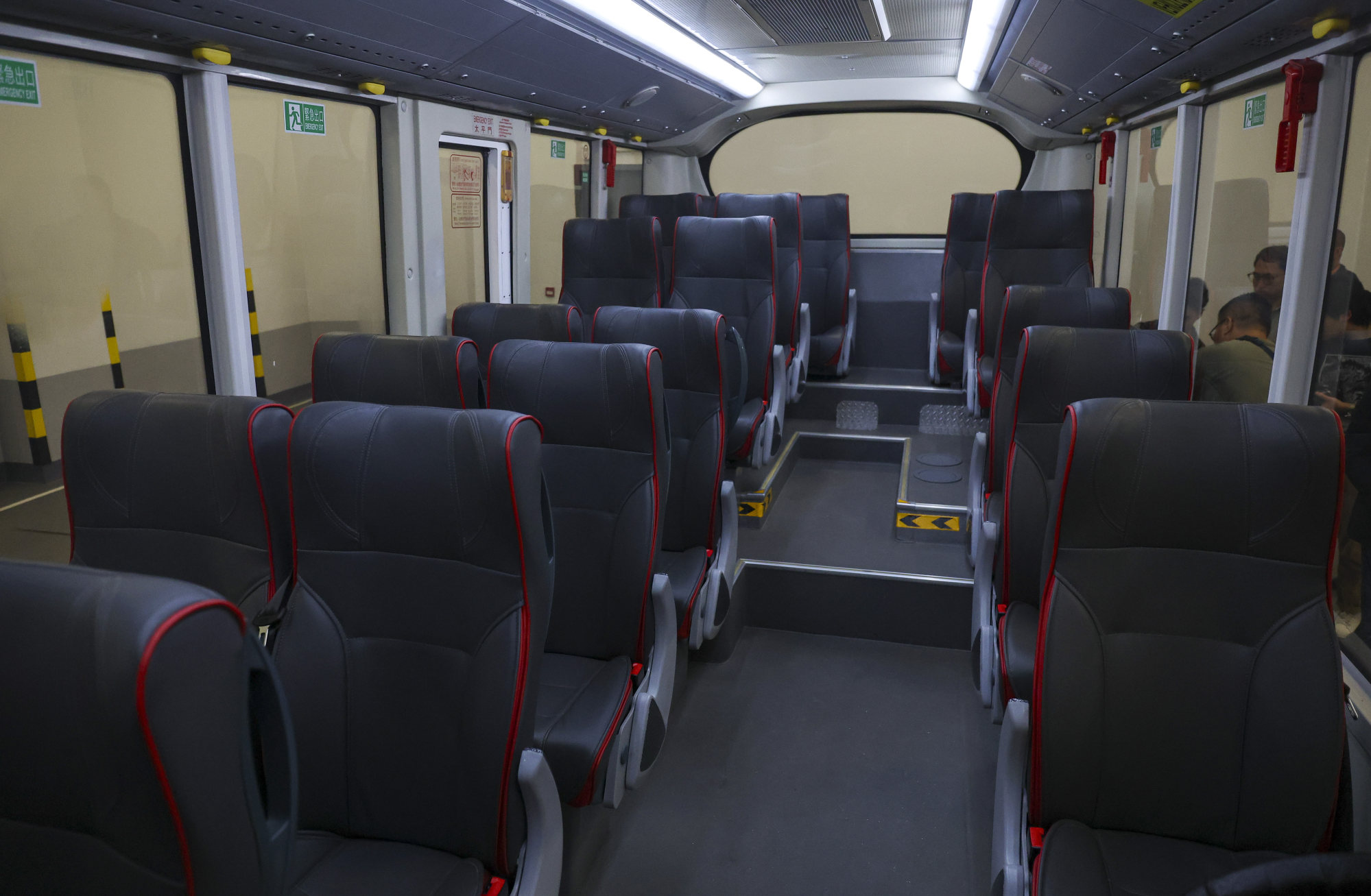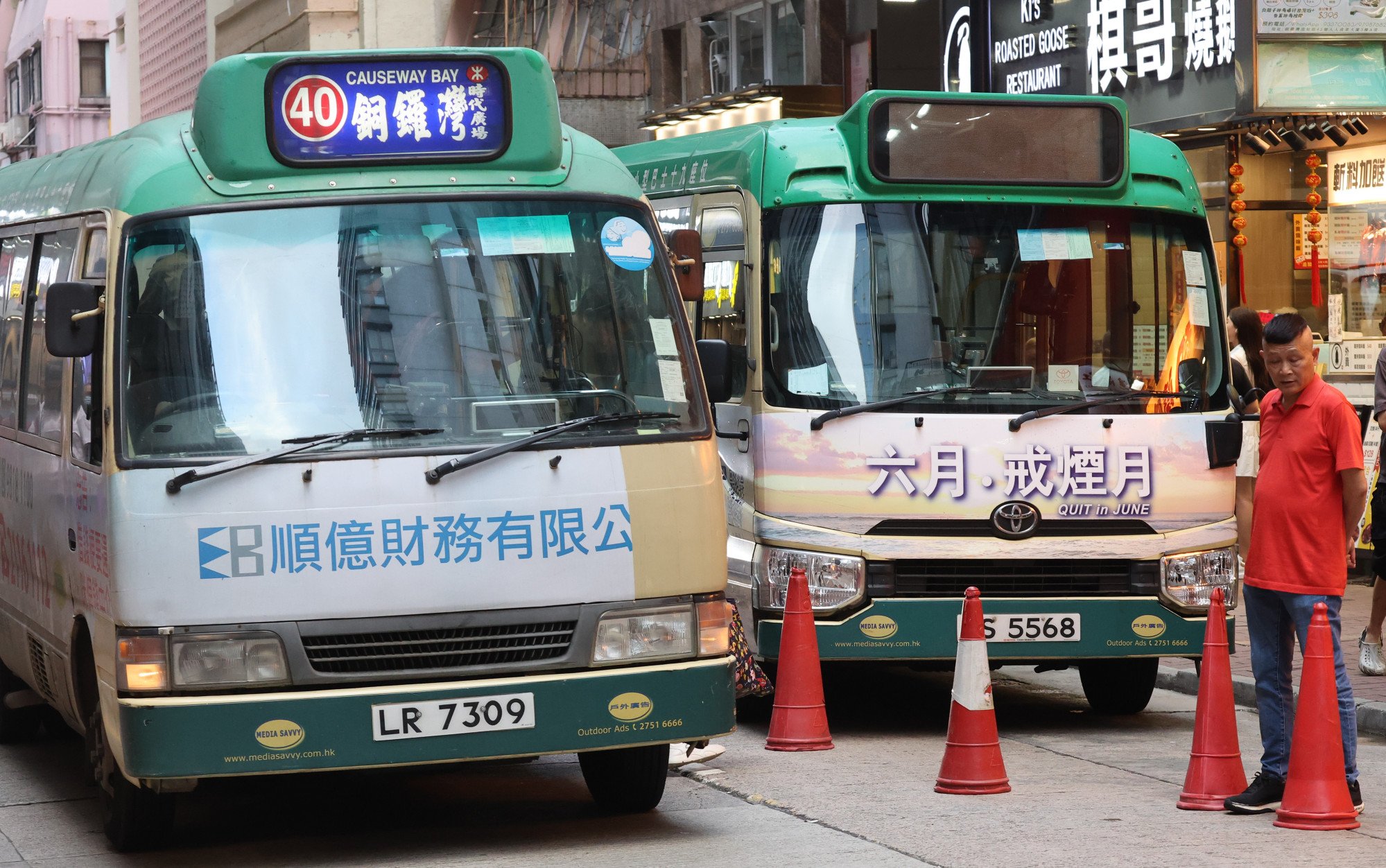Exclusive: Hong Kong green transport: appliance distributor Shun Hing Group eyes slice of electric minibus pie with 5 vehicles

[ad_1]
“We aim to break even in three years and get a 10 per cent share in the e-minibus market in five years,” he said.
The group produced Hong Kong’s first electric minibus costing HK$2 million in August after receiving approval from the Environmental Protection Department.
The model is named Moonca, which means “full house” in Cantonese.
Why mainland Chinese are eager to get behind the wheel of Hong Kong minibuses
Why mainland Chinese are eager to get behind the wheel of Hong Kong minibuses
Mong said his company also hoped to extend into the city’s private minibus market, which has about 3,500 vehicles.
“The EV market is definitely profitable. This is the prevailing and inevitable trend as the city’s minibuses will all be converted to electric vehicles sooner or later,” he said.
“We would like to focus on public minibuses first and stretch out to other types of private light buses later if the response is good. We are making the first move and will take one step at a time.”

One of the largest electrical appliance distributors in the city, the company also supplies EV chargers to housing estates and shopping centres in partnership with electric car makers such as Tesla and Mercedes-Benz.
The group’s production of e-minibuses is part of the government’s HK$80 million pilot scheme to promote electric public light buses with 40 vehicles being subsidised to cover 80 per cent of the cost.
Its subsidiary, Shun Hing New Energy, was picked as one of six pre-qualified suppliers of electric public light buses under the pilot scheme.
Hong Kong transport operators apply to import 1,600 mainland Chinese drivers
Hong Kong transport operators apply to import 1,600 mainland Chinese drivers
It built the 19-seater Moonca in a joint venture with Guangtong Automobile, a subsidiary of mainland Chinese firm Gree Altairnano New Energy.
Mong said the main hurdles in Hong Kong’s move towards full adoption of electric transport were the lack of charging infrastructure and the government’s slow pace of action.
He said a road map for the adoption of e-minibuses was needed to encourage operators to make the change.
“Operators need to know what’s next after this pilot scheme. The subsidy for 40 minibuses is definitely not enough,” he said.
Hong Kong-built first electric public minibus to hit road by end of year
Hong Kong-built first electric public minibus to hit road by end of year
Hong Kong had 63,225 registered electric cars by the end of July, or about 6.8 per cent of all vehicles. But there were only 6,142 EV chargers for private cars at the end of June, or about one for every 10 vehicles.
“Some minibus operators are interested in Moonca, but they dare not place orders as the minibus charging facilities are not ready yet,” Mong said. “The government needs to speed up construction of charging stations if it wants to promote converting minibuses to EVs.”
Minibus batteries may be powered up at the usual charging stations or at pantographs, which are overhead charging stations.
Two public pantographs for minibuses will be in place at Kwun Tong and Kowloon Tong soon.

The government announced in 2021 that it aimed to achieve carbon neutrality by 2050 and unveiled its plan to popularise EVs and phase out new internal combustion engine cars by 2035.
It said it would set out a timetable for adopting electric commercial vehicles in 2025 and would conduct trials for green public transport and haulage vehicles.
Gary Ng Fuk-keung, managing director of Shun Hing New Energy, said the government had to do more if it hoped to achieve its zero carbon emission target.
“We need more funding, more charging facilities, faster installations and a quicker EV approval process to speed up the city’s EV adoption,” he said.
Transport operators may also use the New Energy Transport Fund to get 50 per cent funding for buying new vehicles.
“The government should speed up identifying locations for charging facilities, such as in the city’s industrial buildings,” he said.
Hong Kong transport sector files 118 applications under scheme to import drivers
Hong Kong transport sector files 118 applications under scheme to import drivers
Chau Kwok-keung, chairman of the Hong Kong Taxi and Public Light Bus Association and owner of more than 10 minibuses, said he would not consider converting his fleet to EVs without enough charging stations at major transport interchanges.
He said the two pantographs were not enough, and there had to be sufficient charging stations at major interchanges so drivers would not have to travel far.
“Without charging facilities, full adoption of e-minibuses will not be possible,” Chau said.
In a related development, the Transport Department announced on Thursday that six innovation and technology projects by transport companies would receive HK$66.2 million from the Smart Traffic Fund to conduct tech projects.
[ad_2]
Source link





